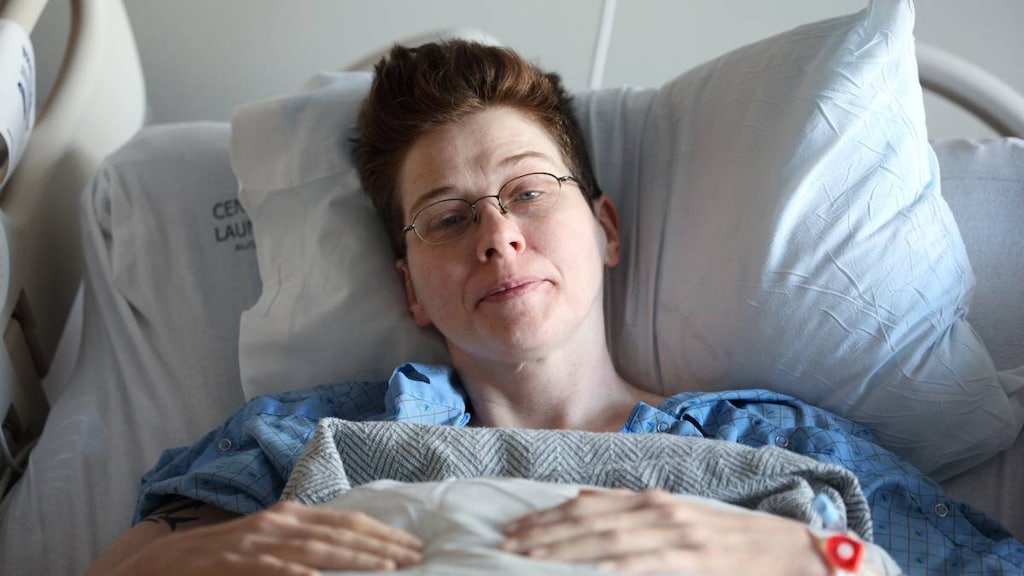Irritable Bowel Syndrome vs. Ulcerative Colitis vs. Crohn’s Disease: What’s the Difference?

IBS (irritable bowel syndrome), ulcerative colitis and Crohn's disease are three distinct medical conditions that affect the gastrointestinal system. Though they're all chronic conditions that have similar symptoms, they are very different diseases. IBS is a gastrointestinal disorder, while ulcerative colitis and Crohn's disease are types of IBD (inflammatory bowel disease).
Comparing symptoms
Because certain symptoms of IBS, ulcerative colitis and Crohn's disease are very similar, it's crucial that you have a thorough doctor's examination and appropriate tests so your doctor can determine an accurate diagnosis.
Irritable bowel syndrome
This is a common, chronic intestinal disorder that can cause pain and discomfort in the large intestine. Symptoms of IBS will vary but typically include diarrhea, abdominal pain, cramping, gas, bloating, loss of appetite, mucus in your stool and constipation, which may alternate with diarrhea. Unlike ulcerative colitis and Crohn's, IBS does not cause inflammation or damage to the intestinal tissue.
Ulcerative colitis
This is a chronic IBD that causes inflammation, small ulcers and abscesses in the large intestine (colon) and rectum. There are different classifications of ulcerative colitis, depending on where the disease is located. When experiencing a flare-up, the most common symptoms are diarrhea and bloody stools. However, additional symptoms may include abdominal pain, fever, fatigue, cramping, rectal pain and the sudden urgency to have a bowel movement.
Crohn's disease
Crohn's is also a chronic IBD that causes intestinal inflammation. The inflammation can penetrate deep into the lining of the layers of the intestinal tissue. Crohn's is typically found at the end of the small intestine and in the large intestine. However, it can be found in different areas of the gastrointestinal tract and can affect anywhere in the body, including the eyes, skin and joints. Symptoms from Crohn's disease can range from mild to severe. The inflammation can bring on such symptoms as diarrhea, abdominal pain, fever, fatigue, blood in your stool, reduced appetite and weight loss. Complications may arise as well, including the possibility of developing a bowel obstruction, ulcers, fistulas and anal fissures.
Comparing causes
While it's difficult to determine a specific cause of IBS, ulcerative colitis or Crohn's disease, a number of different factors can contribute to these disorders.
Irritable bowel syndrome
Factors that may contribute to IBS, according to the Mayo Clinic, include:
- Inflammation, which can cause an increase in the production of immune-system cells, which, in turn, can cause diarrhea and abdominal pain
- Changes in bacteria or an overgrowth of bacteria in the intestines, which can affect your intestinal health
- A viral or bacterial infection that causes diarrhea, which can initiate IBS symptoms
- Abnormal intestinal muscle contractions that are stronger or weaker than normal
- Nerves in the digestive system that react abnormally, causing pain and discomfort.
- Certain foods
- Stress
- Hormonal changes in women
Ulcerative colitis and Crohn's disease
While stress and diet do not directly cause these IBDs, they can cause symptoms to worsen. According to the Mayo Clinic, possible causes of ulcerative colitis or Crohn's include:
- A malfunctioning immune system. When the immune system is not functioning as it should, it not only fights off harmful viruses or bacteria but also may attack healthy cells in the intestine. If this happens, inflammation will occur, which will trigger symptoms.
- Genetics. If a close relative, such as a sibling or parent, has Crohn's or ulcerative colitis, you have an increased risk of developing the disease.
Comparing methods of diagnosis
Certain diagnostic tests and procedures can definitively diagnose Crohn's and ulcerative colitis, according to the Crohn's and Colitis Foundation. However, there are no specific tests that will conclusively diagnose IBS.
Irritable bowel syndrome
Your doctor will base an IBS diagnosis on your symptoms and how long you've had them. If you have experienced diarrhea and abdominal pain for three consecutive months or if you had these same symptoms off-and-on for 12 months, you may have IBS. Your doctor may also ask how often you have bowel movements, if there have been any changes in the consistency of your stool and if you experience significant relief with bowel movements. Although your doctor may order diagnostic testing and procedures, this would not be to diagnose IBS but rather to rule out other intestinal diseases, such as ulcerative colitis and Crohn's.
Ulcerative colitis and Crohn's disease
When diagnosing these two IBDs, your doctor may order several tests. These may include blood tests, stool samples and a colonoscopy, in which biopsies of suspicious areas will be taken. Additional tests may be needed for a Crohn's diagnosis, such as an upper endoscopy, capsule endoscopy, CT, MRI or a balloon-assisted enteroscopy. These diagnostic imaging exams can help evaluate the small intestine, which can be affected by Crohn's. These tests would not be necessary to diagnose ulcerative colitis because it only affects the large intestine.
Comparing treatments
Once you are diagnosed with a gastrointestinal disorder, it is essential to adhere to the treatment plan set up by your doctor.
Irritable bowel syndrome
The main focus of treating IBS is to alleviate symptoms in order to maintain a normal day-to-day life. This may include:
- Medication. Depending on your symptoms, your doctor may recommend over-the-counter medications, such as anti-diarrheal drugs, laxatives or fiber supplements. Your doctor may also prescribe medications such as antibiotics, anticholinergics (to relieve intestinal spasms), antidepressants (to inhibit neuron activity and relieve pain) or other medications approved for IBS.
- Diet changes. Your doctor will discuss making changes to your diet and the importance of learning which foods may be triggering your symptoms so you can eliminate them from your diet. It's also important to drink plenty of water.
- Stress management. If you are under severe emotional stress, psychotherapy may be an option.
- Regular exercise.
- Sufficient sleep.
Ulcerative colitis and Crohn's disease
Because everyone is affected differently, your doctor or nutritionist will work out a personalized treatment or therapy plan. The combination of medication and diet changes can help decrease the frequency of flare-ups and enable longer remission periods.
- Medication. According to the Cleveland Clinic, medication is the recommended treatment for both ulcerative colitis and Crohn's disease when diagnosed early. Anti-inflammatory medications (such as corticosteroids), immune-suppressors, biologics and antibiotics may be prescribed. These will help reduce inflammation, alleviate symptoms, prevent or treat infection and encourage healing.
- Diet changes. Modifying your diet will also be an essential part of IBD treatment. It is important to learn which foods or drinks are responsible for triggering your flare-ups.
- Surgery. This may be an option for people who are suffering from severe complications from ulcerative colitis or Crohn's, such as ulcers, bowel obstruction, tears in the colon, excessive bleeding or severe inflammation. While surgery is considered a cure for ulcerative colitis, there is no cure for Crohn's disease, and even after surgery is performed, Crohn's can return.
Article references
- Mayo Clinic, Irritable Bowel Syndrome (IBS), Symptoms and Causes https://www.mayoclinic.org/diseases-conditions/irritable-bowel-syndrome/symptoms-causes/syc-20360016
- Crohn’s and Colitis Foundation, IBS vs. IBD https://www.crohnscolitisfoundation.org/what-is-ibd/ibs-vs-ibd
- Cleveland Clinic, Inflammatory Bowel Disease (IBD) https://my.clevelandclinic.org/health/diseases/17126-inflammatory-bowel-disease-ibd
- Centers for Disease Control and Prevention, Inflammatory Bowel Disease https://www.cdc.gov/ibd/what-is-IBD.htm
- Mayo Clinic, Ulcerative Colitis – Symptoms and Causes https://www.mayoclinic.org/diseases-conditions/ulcerative-colitis/symptoms-causes/syc-20353326
- Mayo Clinic, Crohn’s Disease – Symptoms and Causes https://www.mayoclinic.org/diseases-conditions/crohns-disease/symptoms-causes/syc-20353304
- Mayo Clinic, Inflammatory Bowel Disease (IBD) – Symptoms and Causes https://www.mayoclinic.org/diseases-conditions/inflammatory-bowel-disease/symptoms-causes/syc-20353315
- Mayo Clinic, Inflammatory Bowel Disease (IBD) – Diagnosis and Treatment https://www.mayoclinic.org/diseases-conditions/inflammatory-bowel-disease/diagnosis-treatment/drc-20353320
- Mayo Clinic, Irritable Bowel Syndrome (IBS) – Diagnosis and Treatment https://www.mayoclinic.org/diseases-conditions/irritable-bowel-syndrome/diagnosis-treatment/drc-20360064
- Crohn’s and Colitis Foundation, Surgery for Crohn’s Disease https://www.crohnscolitisfoundation.org/what-is-crohns-disease/treatment/surgery





